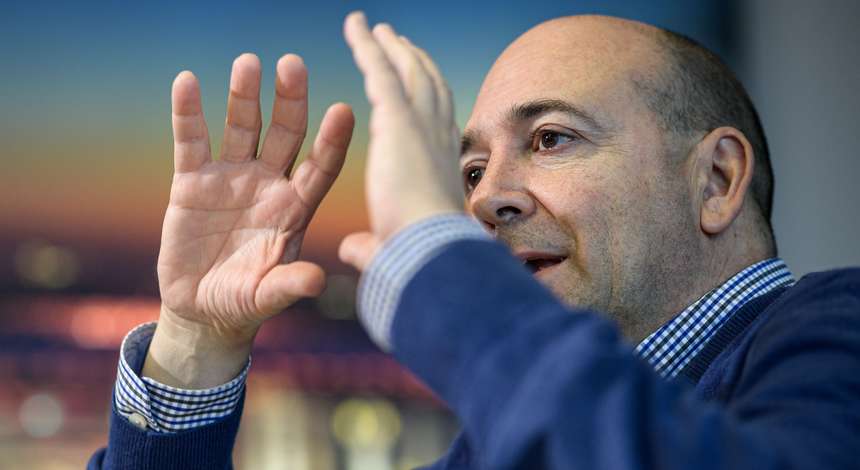
Mr Carro, you have experienced a lot in your working life. Nevertheless: Is the coronavirus pandemic the biggest challenge you have confronted in your professional career and perhaps also your private life?
Carro: "I'm actually a big friend of challenges. I have always felt comfortable in difficult situations. I like approaching and mastering a complex situation and that shaped my time at Bertelsmann. The coronavirus pandemic was and is very special because it's the first time challenges are not just limited to one area. They affect our whole life in all areas: socially, privately and also professionally. It is unique. But it doesn't change anything about my fundamental attitude. I take things as they come, remain confident and try to make the best of it with my colleagues day in, day out."
What makes the coronavirus pandemic so unique?
Carro:"I think, it’s primarily the realisation you don't have the solution of this whole situation completely in your own hands. As a member of the club management, you are dependent on vaccinations, politicians, decisions affecting society that are taken elsewhere and reach out far beyond sport. Of course, that is frustrating at certain moments because you only have a limited influence on how that turns out. So I would say: Yes, from a professional viewpoint and looking back at my 56 years, it is probably the most demanding situation I've ever been confronted with. On a private level it is even more difficult for me. I am by nature a person who enjoys contact but that's not possible at the moment. I have adhered strictly to all the regulations for months and now I almost exclusively meet my friends virtually."
How do you handle that practically?
Carro: “I'm somebody who doesn't have any problems working with last-minute decisions or in unpredictable situations. If you look at the pandemic and its effects on our life as a whole then we do have the possibility of working for Bayer 04 within these overall conditions in a far-sighted way that hopefully has positive effects. This presents one of the special challenges: Making smart business decisions in a difficult situation to take us forward. That appeals to me."
The situation that there are no supporters at the stadiums is unique for the league. How much of a burden is that for the club? How can you and Bayer 04 deal with it?
Carro:"I still remember the first game without spectators in Bremen. We arrived at the multi-storey car park and were met by Marco Bode (chairman of the supervisory board at Werder Bremen, ed.) and then we had to go straight to our seats in the stadium. We had to go right round because it was on the other side. We went through a lot of VIP and public areas, it was dark everywhere and there were chairs on tables and everything was empty: It was depressing. It's a pity because spectators, the atmosphere, the emotions are an incredibly important part of the experience of live football. These are things we miss most. We will be happy if even some of our fans were allowed back even if that would cost us as a club. Because, of course, the empty seats also have significant financial effects but the most important factor is that the surreal silence and emptiness in the stadiums."
Bayer 04 loses income in the upper six figures for every home game.
Carro:"Just in that area, we will have lost two digit millions by the end of the season. That's why were trying to compensate for it by making financial savings – or generating transfer income, which we may perhaps have avoided or at least would have dealt with differently."
Or alternatively do without new signings.
Carro: "Exactly. We have been criticised for bringing in too few new players after selling Kevin Volland and Kai Havertz. It's a strange affair. It used to be said: In football, humility is required but if a club is responsible and restrained then that's not right either. The fact is: In the current situation we’re not going to spend one hundred million euros if we take in one hundred. At the end of the day, we have to consider the financial circumstances in addition to our sporting targets. We need a healthy mix of financial stability and sustainable development."
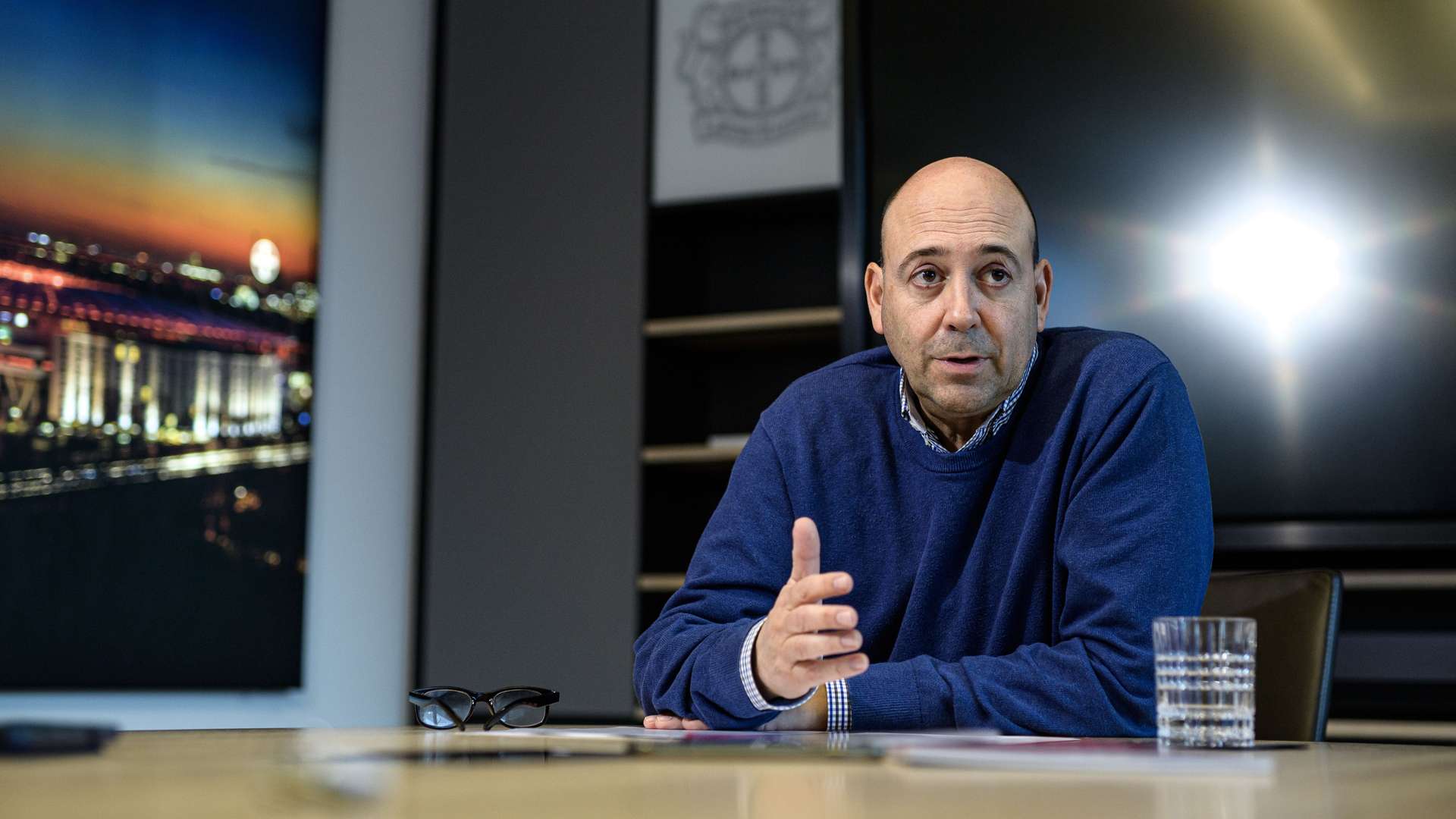

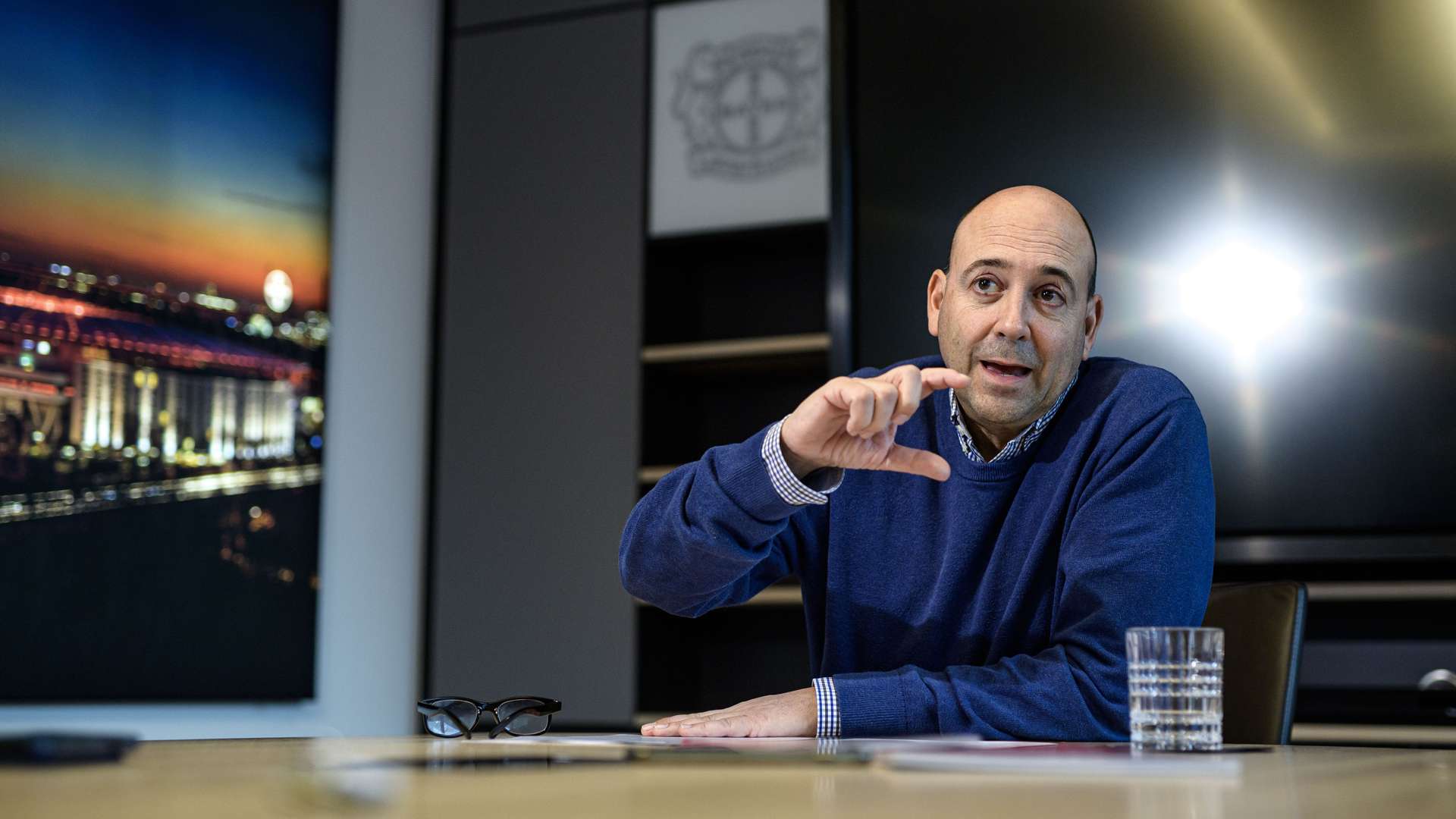
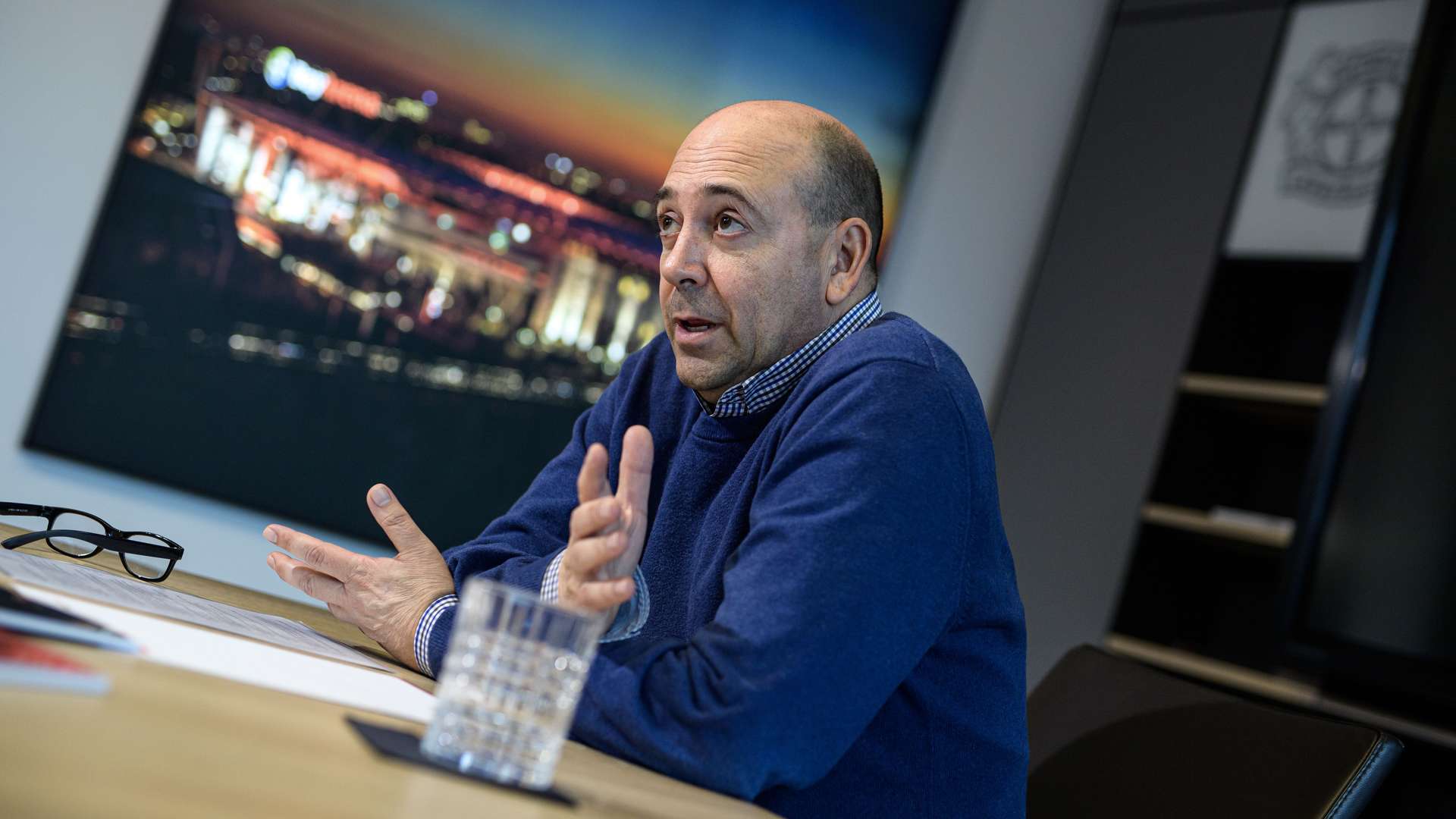
DFL CEO Christian Seifert talked about a drop in income of two billion euros in two years due to the coronavirus pandemic, an alarming figure. In view of the precarious general situation, is it an advantage to have a big company like Bayer AG behind you?
Carro: “It’s definitely very important in terms of the issue of liquidity on the operational side of the business. The challenge for a normal medium-sized company in ensuring liquidity is not available to us because of the collective cash pooling arrangement at Bayer AG. That may be more comfortable in a certain way but we have similar challenges to overcome as all the other clubs. We have to keep an eye on our figures and think about what we’re spending money on and where we can earn income every day.”
DFL boss Seifert said he had the impression that not all clubs had grasped the seriousness of the situation. Too little has happened in terms of wages for example.
Carro: “It’s simple mathematics. As income is missing now and in the future, there will have to be an according adjustment in costs. But that is only possible with a delay because of current contracts. I’m assuming that wages will go down with new contracts or extensions and that transfer income will not be as high as it has been. There will always be a market for absolute top players but the numbers will go down. Everybody has to understand that. I hope that players and their agents have been able to recognise that. What makes it harder: Even if there is that recognition then you have to accept current contracts as they are made as a member of club management.”
Unless players agree to a voluntary reduction.
Carro: “Players won’t simply accept less money but they will need to know what it’s used for. That’s their right too. In the spring we agreed a salary waiver with the players and that was not to use the money for our balance sheet but instead to carry on paying employees or also avoiding short-time working. Originally, the agreement applied beyond the summer. But when you suddenly receive such a massive sum for a player’s transfer then you can hardly demand: ‘You have to do without the money now.’ We believe everything has to be in step. When the transfer of Kai Havertz was completed, we paid the full amounts again as the club. I think anything else would have been inconsistent.”
What is the situation abroad? For example, do you believe German football is more stable than in Spain in spite of the problems?
Carro: “Definitely. First of all, German culture and, by association, German football management are more reserved. Germans are generally more careful with their money than the Spanish. I can say that as a Spaniard. The clubs in the Spanish league are happy to take risks, they rely on success on the pitch to be able to pay the increased wages from the income produced. The problem is: The money isn’t there if they are not successful. People are fundamentally more careful in Germany. Here at Bayer 04, we have based our budget on a whole season without spectators and in the cup competitions we are always realistic and conservative in our planning. That approach perhaps doesn’t suit everybody but it applies to most of our domestic competitors. That’s why I say: German football is better and more solidly structured in comparison with other leagues.”
Are you happy with the new DFL allocation formula?
Carro: “I think the steering committee has done a good job. There is the new stream of equal distribution that shows everybody how much solidarity is being is actually being enacted. We have had this before but it wasn’t transparent. It was a brilliant idea to make it clearly accessible. And we agree to 90 per cent in the league that the issue of performance has to play an important role. It can’t be right that it doesn’t matter if you finish the season tenth or fifteenth. That would be a distortion of competition. That’s why I say we can work very well with the outcome in general. I would put greater emphasis on performance.”
Ahead of the steering committee meeting, there is a G15 meeting at the Frankfurt Airport Hotel you played a large part in setting up. They appear to be newcomers without the same background. Does that fit in with your role or character?
Carro: “It’s right that I am a newcomer. But after two and a half years it feels like I’ve been involved for 30. Or at least 20. (he laughs) I’m a passionate networker. I enjoy the dialogue with the league management but also with European bodies - and I’m also convinced I can make a significant contribution even though I have never been a professional footballer. It doesn’t matter if you’ve here for two years or twenty, there will always be that differentiation.”
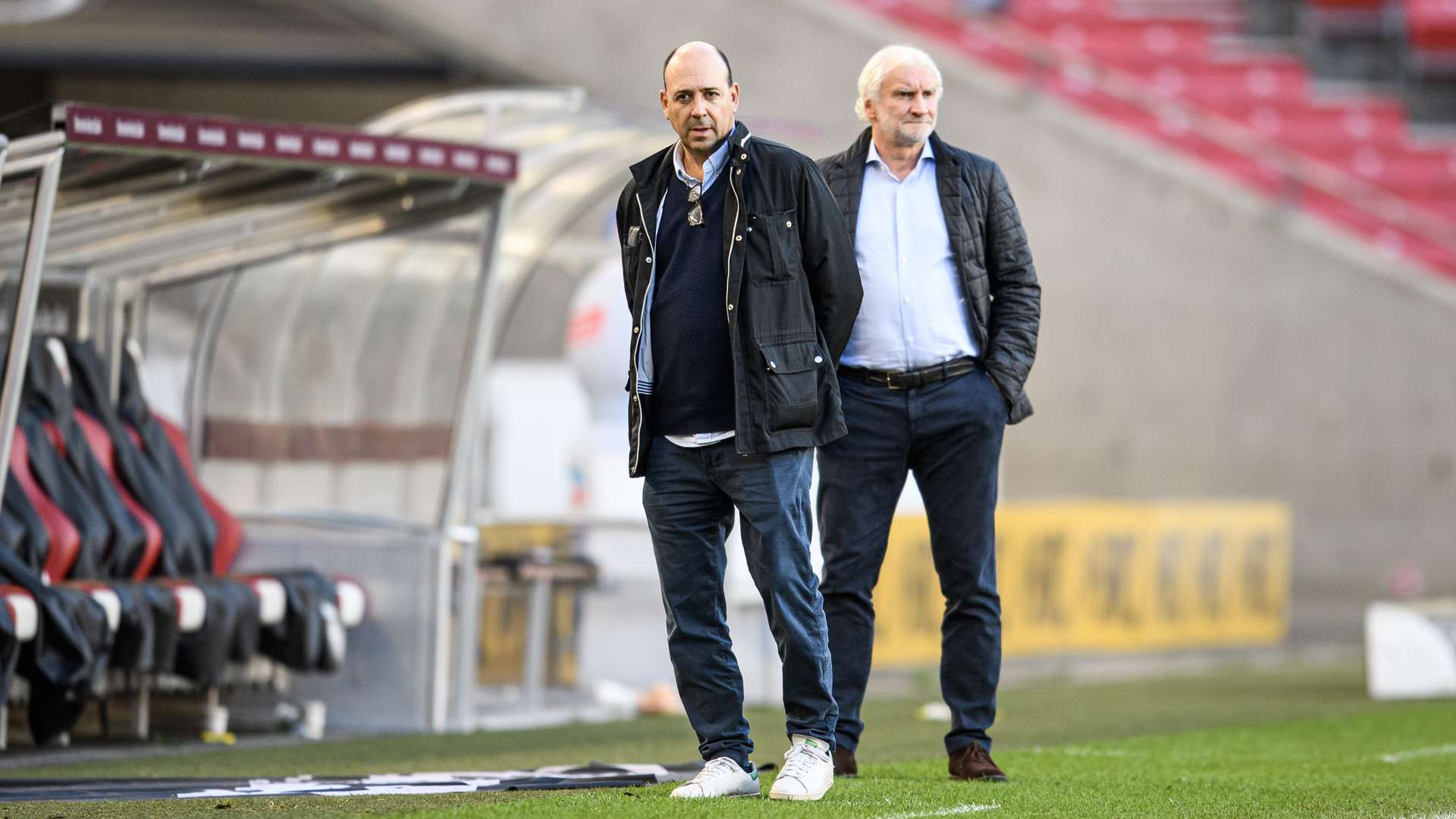

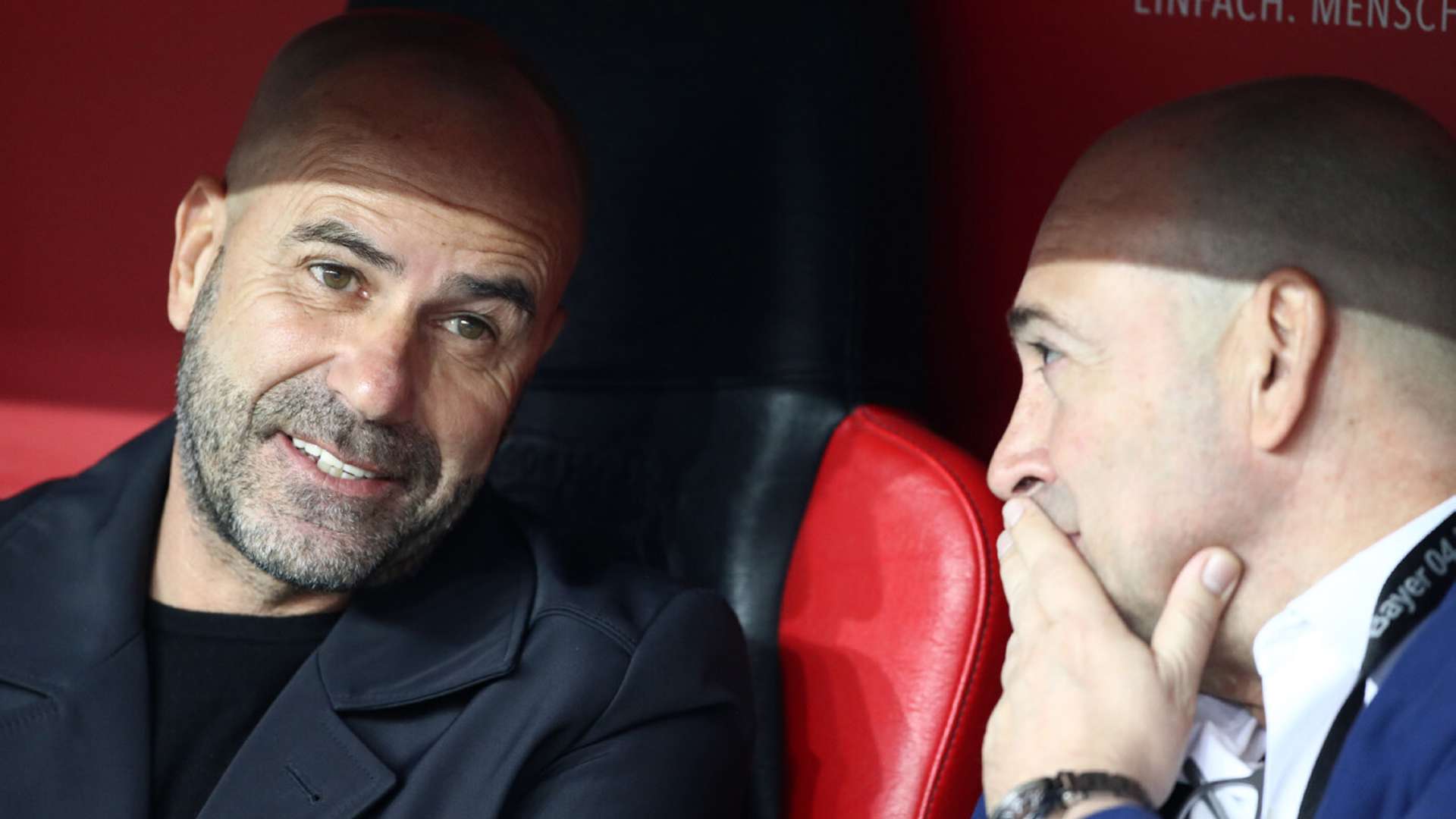
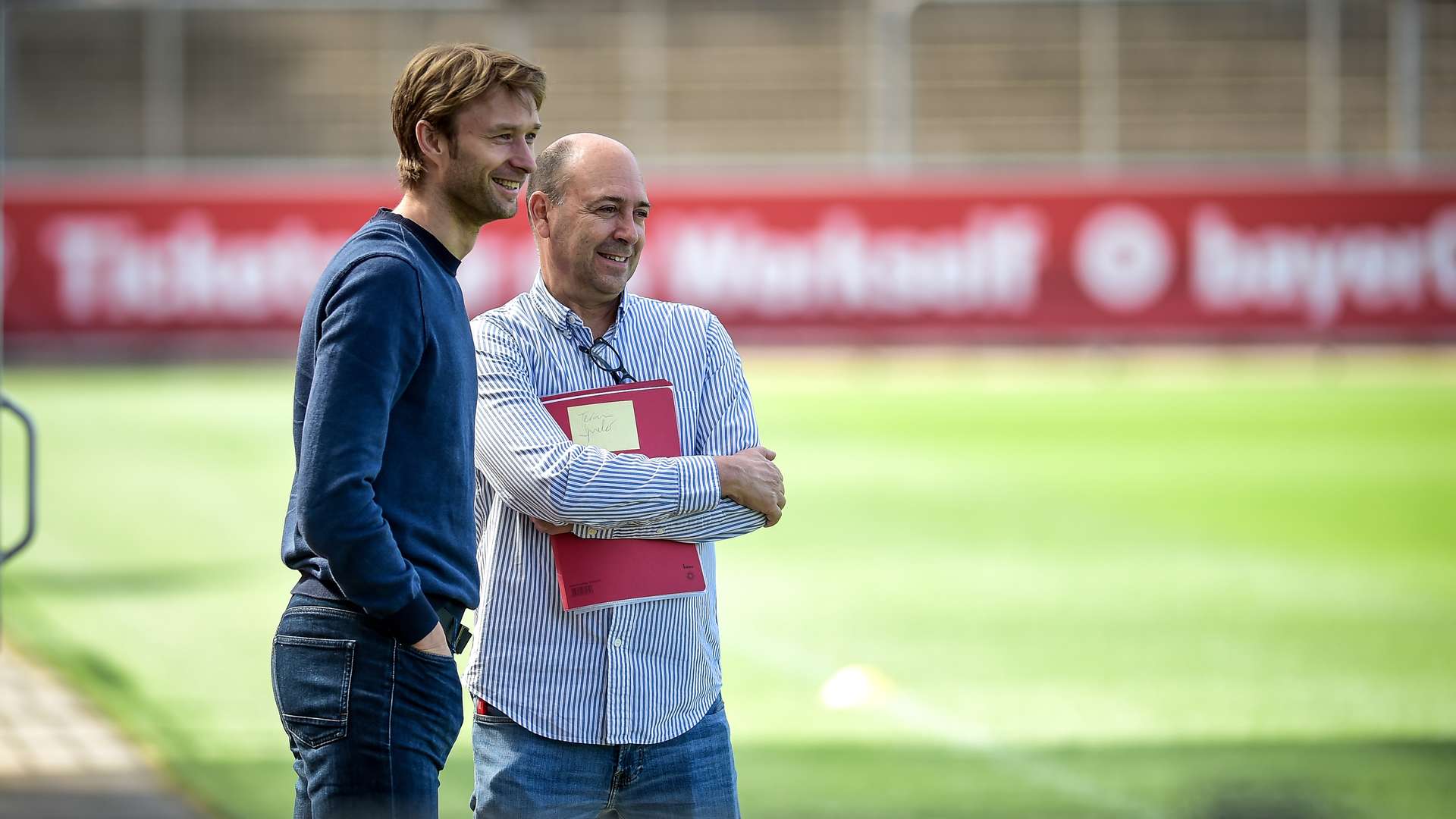
Who emphasises the difference? The former players or the public?
Carro: “This difference is just there and it belongs to the football system to a certain extent. The expertise or the experience that a Rudi Völler, a Simon Rolfes or a Stefan Kießling has, I don’t have – but I have others. The crucial thing is: If you’re in the position, as a Bundesliga club, to combine and reconcile business expertise with sporting knowledge and experience, then you are fundamentally in a good place. I think being able to quickly absorb and adapt these things, this knowledge, is one of my strengths.”
Ultimately, it’s about more than 90 minutes of football.
Carro: “Being a former player on its own is no longer enough to meet the increased demands of the business. Clubs have turned into companies. Partly, how we, connected with a group corporation, have several hundred employees and international pretensions beyond sporting competitions. There are a large number of areas of responsibility where corporate knowledge and experience in this area is a great advantage. It’s best of all if you have that and were a professional footballer.” (he laughs)
There are more and more voices, including from other clubs, saying: We are concerned that football will not be the same after the coronavirus pandemic.
Carro: “If I have concerns then then it’s more about the general and existing trend that the younger generation is growing up in a different way, that user and leisure behaviour have changed fundamentally with much more happening on computers. But perhaps that is part of the German character that you always worry and take a philosophical and academic way. To be honest, I don’t worry about people going to the stadiums but instead I think that spectator interest will continue to grow over the middle and long term. Of course, there is a basic risk that people have noticed: I can manage without football at the weekend, you can do something else. But in the end, if there is the possibility of visiting a stadium then the fans will return. That’s my firm conviction. Live events have a great attraction that can’t be replaced by anything else. And the live experience of Bundesliga football is simply huge and I don’t think that will change in a hurry.”
In the summer, you gave an assessment of the season: “Aspiration and reality are far apart for us.” That was a clear statement. Five months have gone by since then. What’s your assessment looking back?
Carro: “That’s done and dusted as we’re in the middle of a competition again and the good thing is that we keep having the opportunity to achieve set targets. Regardless of that, I haven’t changed my mind. So, I can’t be happy with last season because we didn’t meet our own expectations. We wanted to qualify for the Champions League and we didn’t manage it. We did get to the cup final and were a step closer to our dream of winning a title. But hard facts count at the end of the day. At heart, I always aim for the top.”
And what’s your assessment of the current campaign?
Carro: “So, I think the team has shown the necessary desire to definitely want to win in a lot games. A lot of players have recognised that it’s time to take more responsibility. The lads are doing that very well now even though the unlucky defeat against Bayern Munich before Christmas pulled us up a bit. But, on balance, we have become more resilient and that makes me confident.”
Is that the key: Desire?
Carro: “It’s not just about wanting but rather doing. Whenever I talk to players, I notice: They know what our aspirations are and they share them. And the coach is extremely ambitious.”
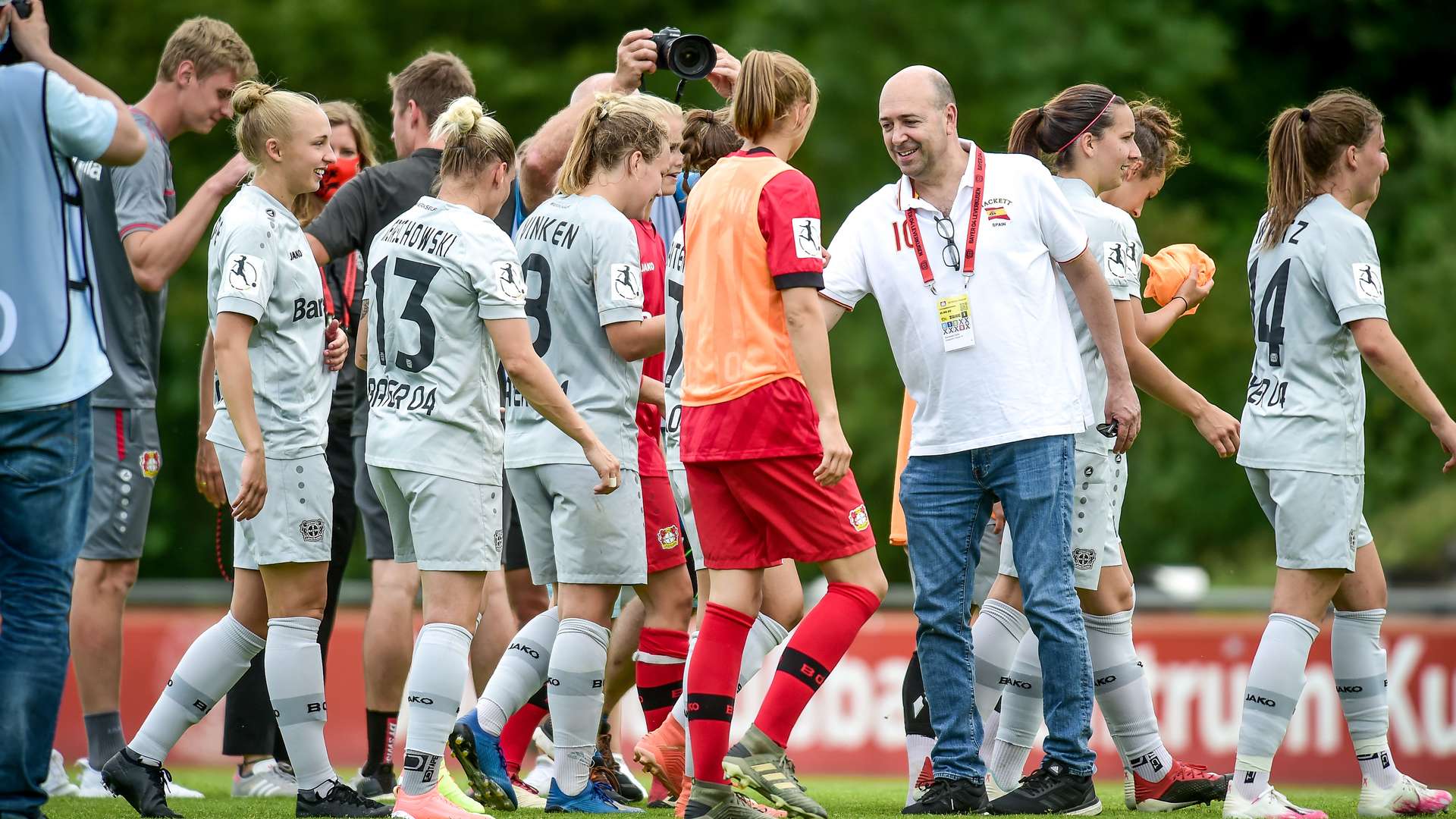
Peter Bosz gives the impression he knows very well what he’s doing.
Carro: “Our coach has loads of experience. He has navigated our team through the many challenging phases of last year very well. He’s had to complete four cycles of preparation and that’s never happened before. The coaching staff were constantly forced to adapt due to the exceptional workload. Coaches have a very important leadership role and also have to be fishers of men to a certain extent. On the one hand, there is the technical side, the analysis, the plan – and, on the other, there is the personal relationship with the players that they maintain through communication. I believe we’ve taken another step forward in 2020.”
How close is your contact to the team?
Carro: “Close. I go to every game including away matches. I routinely go to the dressing room and talk to the players but also to the members of staff. That’s an important part of my work for Bayer 04 as our success is decisive in that area and I feel responsible for that.”
Because you are automatically responsible for the sporting side as chairman of the board…
Carro: “We are a football club and the chairman of the board should be on the ball in sporting matters as the financial impact is the biggest here. When we, as we have recently, complete transfers in the summer for millions, I want and have to be closely involved. It goes beyond that, primarily about the big issues, the strategic questions, plans, developments. We always agree who talks to who and at what point in time. Everybody plays their part and that is real teamwork.”
What else can or should a football club like Bayer 04 Leverkusen Fußball GmbH do?
Carro: “We are currently developing a policy statement with all employees with a vision and a mission. Our main focus is obviously on the sporting elements. We want to be one the top 16 in Europe and that’s the target. We also want to be a strong football brand in a global context, use the connection with the Bayer group even more to the benefit of both sides. Beyond that, as a football company in public, we have a third foundation and that is show social responsibility. Issues like sustainability, ecological and social components play an important role. And we are dealing with that in stronger and more structured ways.”
The subject of internationalisation is an important factor. Is that possibly something Bayer 04 can do even more?
Carro: “Not can, but must. Look at the big clubs, they deserve their recognition and their money through being a big brand with international pulling power. If you are at a level where we want to get too and want to compete then you have to be able to be able to keep pace in the global competition for attention. We already have a really high profile internationally through the name of Bayer as well as our sporting honours and the many Latin American players in the club’s history. We want to use this very promising starting point, and have worked on that in a targeted way for many years in markets like China, USA and Latin America. Up to now, this work has been more of preparatory character and has been going on in the background. That will most probably change soon even though it is too early for details at this point.”
The one element is the strategic direction and the other is short-term success. How difficult is it to be measured by the results on the pitch every weekend?
Carro: “I can handle it although it is sometimes frustrating not being able to have a direct influence. You can do great work in club management and the team still isn’t successful. Of course, it mostly coincides but not always. That’s why you have to work to increase the probability that the team can perform on the pitch.”
That means?
Carro: “Winning games. Preferably every one of them and then you end up with something in your hands.”
The interview with Fernando Carro is in the latest Werks11 Magazin available now. Club members will receive the current edition 29 through the post in the next few days. In addition, the magazine is available from all the usual outlets in and around Leverkusen as well as all Bayer 04 shops. Bayer 04 fans can enjoy a good Black and Red read – that includes an interview with Lucas Alario, Sven Bender on ending his playing career, we look forward to the attractive encounter with Young Boys Bern in the Europa League and we have traced the now 66-year-old Werkself defender Dietmar Demuth.
Related News
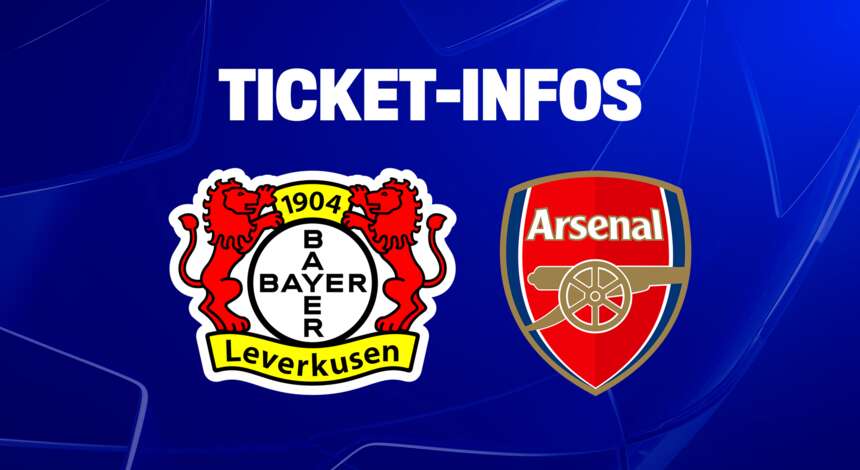
Tickets for the Champions League Round of 16 home game against Arsenal
The Werkself host Premier League club Arsenal in the Round of 16 first leg in the 2025/26 UEFA Champions League campaign. The match at the BayArena is on 10/11 March. Read on for information on ticket sales for this fixture.
Show more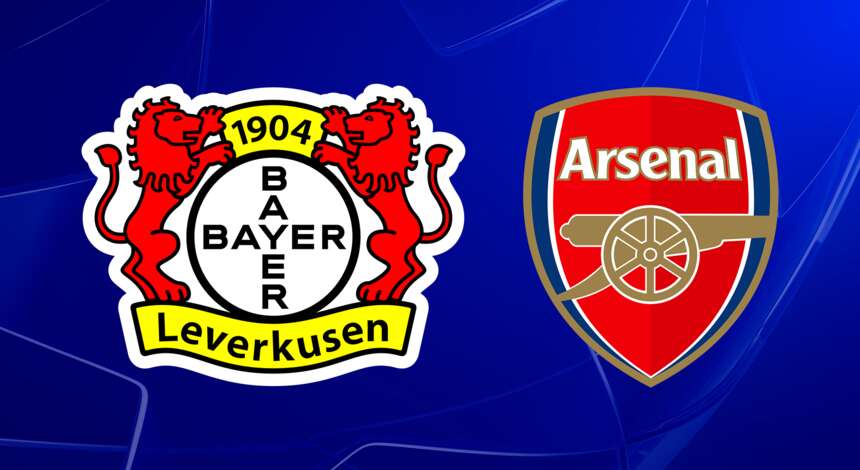
UEFA Champions League: Werkself face Arsenal in Round of 16
The draw for the Round of 16 in the UEFA Champions League 2025/26 was made today, Friday 27 February: Bayer 04 face Premier League leaders Arsenal. Managing director sport Simon Rolfes sees the English team as a "top opponent" and is looking forward to meeting former Werkself players Kai Havertz and Piero Hincapie again.
Show more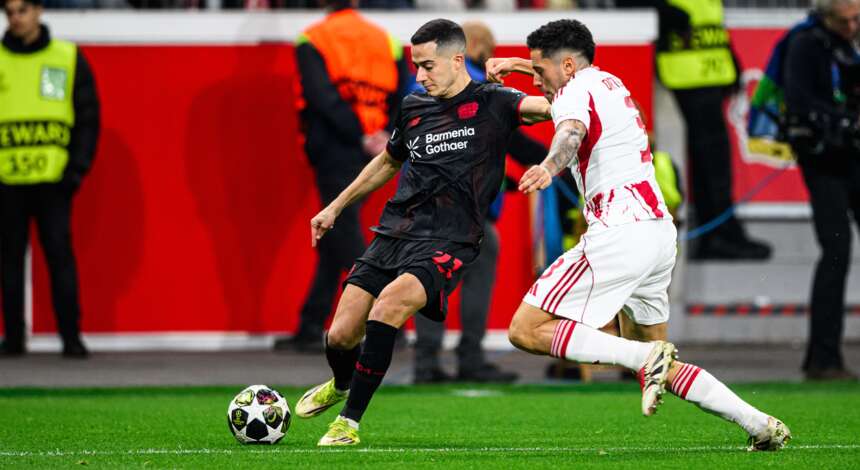
Injury sidelines Lucas Vázquez
Bayer 04 Leverkusen will have to manage without Spanish player Lucas Vázquez for the time being. The experienced full-back and winger suffered an injury to his right calf during the Werkself's Champions League match against Olympiacos (0-0) on Tuesday.
Show more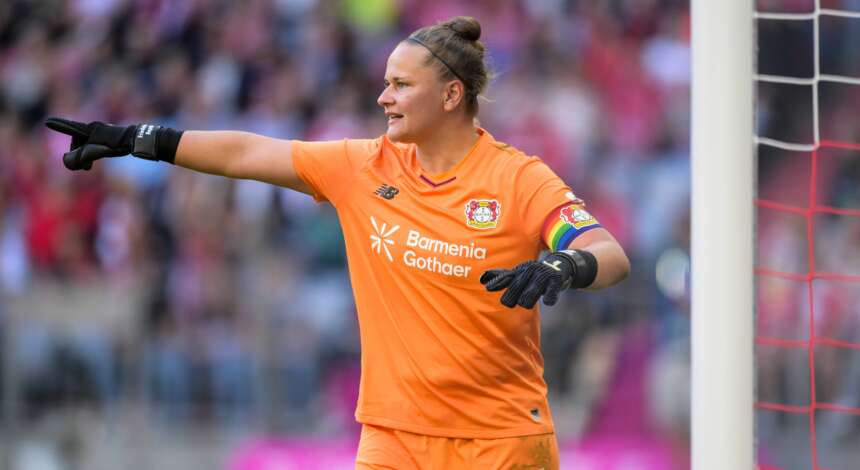
After five years at Bayer 04: Goalkeeper Friederike Repohl to retire
A goalkeeping era is coming to an end for Bayer 04 Women, with Friederike Repohl retiring when her contract expires at the end of the season. The 31-year-old has played for the Werkself since 2021 and also captained the team since last season. The Bielefeld-born keeper already made her decision during the winter break before her injury.
Show more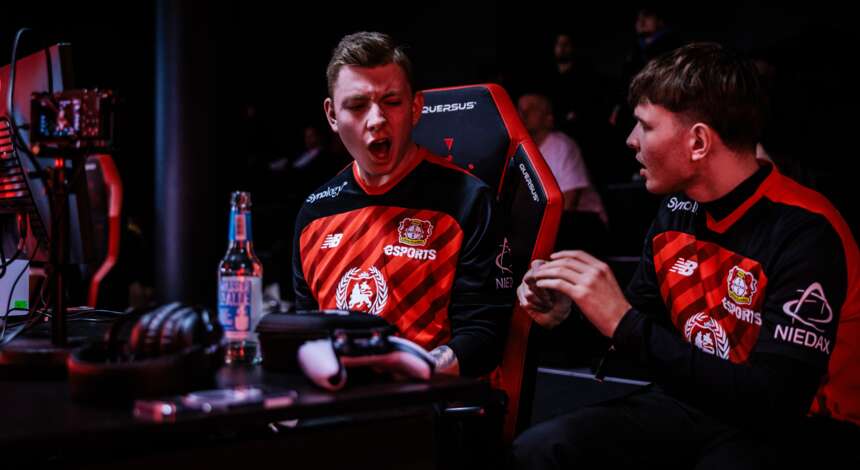
#B04eSports: Leverkusen through to third straight VBL CC final after play-off win
Job done: the Bayer 04 eSports team defeated SV Darmstadt 98 in the play-offs to secure their consecutive participation in the VBL Club Championship final. The journey continues now for Leverkusen on Saturday 7 March (from 17:00 CET) with a last-16 encounter at Hamburger SV.
Show more